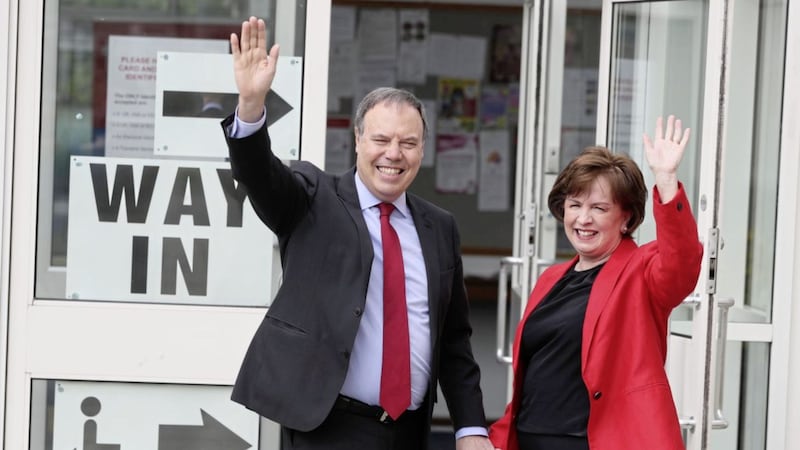Between now and the next assembly election, be that sooner or later, events now unforeseen may decide the outcome.
Drama can fade as well as flare, fielding the right candidates as vital as shaping policy. What will the DUP and Sinn Féin fight on?
In the Get Foster schemozzle there was almost too much to chew over. The Arlene temperament let her down at the end as at the beginning. On top of Brexit, the damage RHI did, her crocodiles, there were ‘social policy’ mis-steps and wobbles. But does trying to be subtle with diehards ever work, any more than trying to keep up with the hardest of hard liners?
For all that Foster maintained to the end that she couldn’t fathom how she had offended, most of the crunch issues were familiar outside the party. One aspect perhaps novel to many was crisply dissected by the reporter who clearly knows the DUP better than its now lamest of lame-duck leadership, Sam McBride. In the middle of two pages on how Foster was taken down, there it was; a ‘mauling’ of Diane Dodds in Upper Bann, because she and Nigel had been so cosseted by Foster.
If McBride has it right, and when has he erred, this had echoes of the situation Sinn Féin belatedly shook up last week in Derry. Small town, Derry, as the DUP at its core is a small party. Spot the resemblances; big names, family ties, sense of entitlement well past what anyone more self-aware would have recognised as an expiry date. The long career of Martina Anderson shares a few characteristics with that of Diane Dodds. They probably share nothing else except gender.
Anderson’s ‘stick it where the sun don’t shine’ was a gulder that pleased only gulpins, the least made-over of republican supporters, if it secretly pleased even them. Dodds in the assembly is a painful watch. Neither she nor Anderson shines under pressure. Years as MEPs seemed to have taught neither of them new skills nor increased their native wit.
But as a long-serving prisoner Anderson was thought to be untouchable and the guldering was deemed useful, or so it appeared. Until that Gerry Kelly-led squad arrived in tight little Derry. Anderson’s niece rose on her coat-tails then crashed spectacularly. Colum Eastwood is a nifty performer but his greatest asset was the calibre of Elisha McCallion and resentment at her promotion.
SF promised analysis of what went wrong with their Derry votes and eventually delivered it, though the delay fuelled disquiet that non-republicans had begun to hear. As with her crocodiles, on her way out the door Arlene Foster helped republicans yet again by muffling the Kelly judgment further behind the interlocked tightness of Derry republicanism.
But reverence for past service is not what it was. DUP control freakery cannot stop time, whatever about trying to turn it back. Nigel Dodds lost his North Belfast seat because nationalists other than SF supporters voted for Pat Finucane’s son. The numbers were changing in any case. He and Diane ought to have settled for his peerage and their considerable pensions.
The News Letter issue with McBride on the anti-Foster/Dodds discontent also had Kyle Paisley saying his father’s strong social views had polled well; ‘Liberal does not equal popular’. Then the article cited NI Life and Times surveys on changed Protestant attitudes between 1998 and 2018.
In 1998, it noted 73 per cent of Protestant respondents thought sex between gay adults ‘always or almost always wrong’; 10 per cent ‘not wrong at all.’ In 2018, 37 per cent said ‘not wrong at all’, 39 per cent wrong always or almost always. In 1999 44 per cent said abortion should be legal, 43 per cent said no. In 2018 to 18 per cent who disagreed, 66 per cent ‘agreed or strongly agreed’ that on abortion it was a woman’s right to choose.
‘Likely to be in many DUP minds’, the News Letter wrote of the findings, ‘as the party considers its future’. We shall see.








